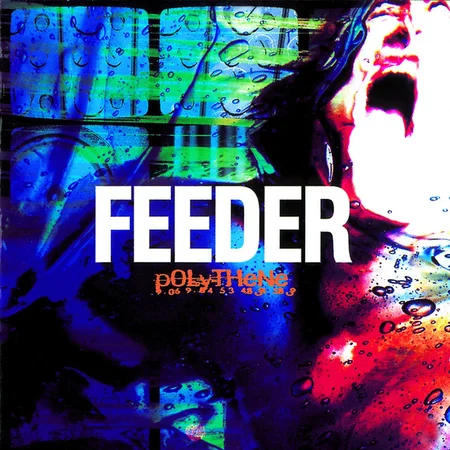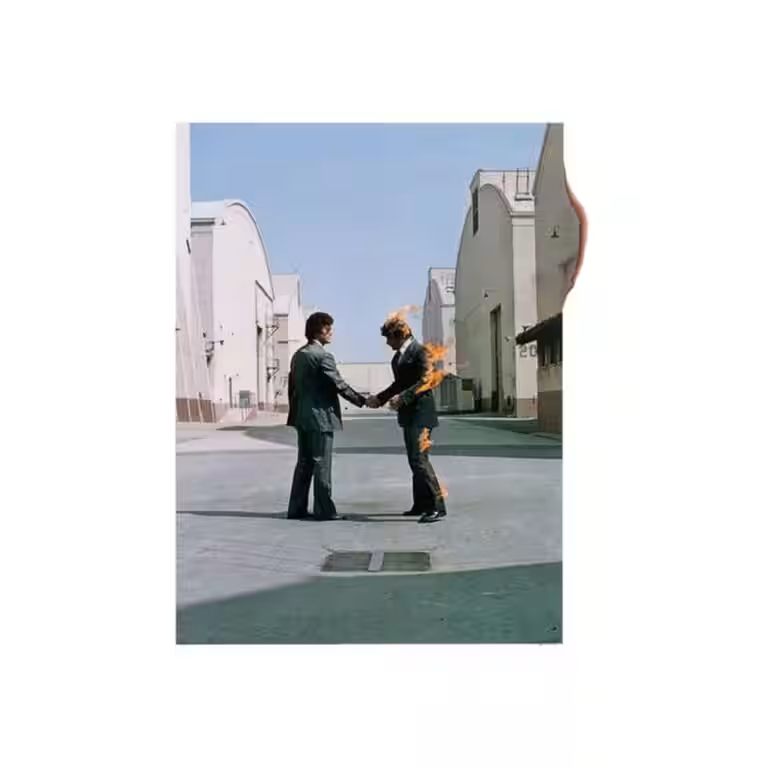
Polythene by Feeder: The Explosive Debut That Shaped British Rock
Every so often, an album arrives at just the right moment and leaves a mark that never fades. Feeder’s debut, Polythene, did exactly that when it landed in 1997. Released into a British music scene buzzing with the last flickers of Britpop and the raw charge of post-grunge, this record offered something different—heavy riffs, melodic hooks, and lyrics brimming with both pain and hope. For many, it was the start of a long journey with a band that would weather tragedy, evolve, and keep on pushing boundaries.
In this article, I’ll guide you through the story of Polythene: its creation, the band’s background, the challenges they faced, and why it remains a touchstone for British alternative rock. You’ll find deep dives into the recording process, commercial reception, song meanings, and the album’s impact. Expect detailed tables, rare quotes, and references to key events in 1997’s wider musical world. By the end, you’ll have a complete understanding of why Polythene is still celebrated nearly three decades later.
| Attribute | Details |
|---|---|
| Album title | Polythene |
| Release date | 18 May 1997 |
| Genre | Alternative rock, post-grunge |
| Total runtime | Approx. 50 minutes |
| Number of tracks | 13 (UK CD) |
| Record label | Echo |
| Recording studio | Various studios, including Great Linford Manor and The Town House, London |
| Producer(s) | Chris Sheldon, Feeder |
Polythene helped shape the late-90s British alternative scene. It introduced Feeder’s knack for balancing raw power with emotional depth, earning praise from critics and fans alike. The album was voted #1 in Metal Hammer magazine’s best album poll for 1997, a sign of its immediate impact (Rock Encyclopedia). Years later, Grant Nicholas, Feeder’s frontman, said, “That record was us finding our feet, but it still sounds like us. There’s an honesty and a hunger in those songs that I’ll always be proud of.” (KentOnline)
Clearly, Polythene is more than a debut. It’s a time capsule, a launching pad, and a testament to the enduring spirit of British rock.
The Genesis of “Polythene”
Let’s wind back to the mid-1990s. British music was in flux. Grunge had swept in from the US, while Britpop’s swagger was everywhere. Yet, by 1996, the scene was fragmenting. Bands like Radiohead and Alice In Chains were showing new directions, and the appetite for something heavier was growing.
Feeder emerged from Newport, South Wales, in 1994. The line-up solidified as Grant Nicholas (vocals, guitar), Jon Lee (drums), and Taka Hirose (bass). Before Polythene, they’d already honed their sound on the Swim EP, released in 1996, and singles like “Stereo World” and “Tangerine.” These early tracks showed their grunge influences—think Smashing Pumpkins and Nirvana—but with a melodic, British twist. In fact, “Descend” and “W.I.T.” from Swim signposted what was coming.
The main creative force was Grant Nicholas, who wrote most of the material. Jon Lee’s drumming brought energy and inventiveness, while Taka Hirose’s bass grounded the songs. The trio’s chemistry was vital, as was their partnership with producer Chris Sheldon, who’d worked with Therapy? and Foo Fighters. Sheldon’s knack for capturing both grit and clarity was a perfect match.
Here’s a closer look at who played what on the album:
| Band Member | Role(s) |
|---|---|
| Grant Nicholas | Vocals, guitars, primary songwriter |
| Jon Lee | Drums, percussion, backing vocals |
| Taka Hirose | Bass guitar, backing vocals |
Financing the album was a challenge. Echo, the band’s label, provided a modest budget, reportedly less than £50,000—a shoestring sum compared to Britpop giants. The band often worked long hours, stretching studio time and cutting costs where possible. There were moments when the band worried about running out of money before finishing. Still, the hunger to make a mark drove them on.
The title, “Polythene,” was inspired by the idea of being wrapped up or protected, yet isolated—much like the plastic itself. The cover art, designed by the Echo Label’s in-house team, features a blurred, almost spectral figure, capturing both vulnerability and anonymity. Grant Nicholas later explained, “We wanted the artwork to reflect that feeling of being sealed off, not quite part of the world, which runs through a lot of the songs.”
Recording Process
The sessions for Polythene took place in several UK studios, most notably Great Linford Manor and The Town House in London. Both were respected studios, with Great Linford Manor known for its warm live rooms and The Town House boasting state-of-the-art mixing desks. Recording spanned late 1996 and early 1997, with producer Chris Sheldon at the helm. Sheldon had already built a reputation for delivering punchy, radio-ready rock records, and he brought that same focus here.
The studio team included Sheldon as producer and engineer, with Feeder themselves co-producing. Sheldon’s approach was hands-on—he encouraged the band to push for strong takes, sometimes recording live as a trio to capture their natural energy. The band tracked most instruments to analogue tape, then overdubbed vocals and extra guitars. The sessions were intense, sometimes running into the early hours. Sheldon’s experience with Therapy? and other alternative acts meant he knew how to balance heaviness with clarity.
Although the exact gear list isn’t fully documented, we can make educated guesses based on the studios and era. Here’s a table of likely hardware and techniques used:
| Hardware/Technique | Likely Use/Details |
|---|---|
| Neve or SSL mixing desk | Main console for tracking and mixing (standard at Town House) |
| Studer or Otari tape machines | Analogue multitrack recording |
| Shure SM57, SM58 microphones | Guitar amps, vocals, snare drum |
| AKG D112, Neumann U87 | Kick drum, vocals, overheads |
| Empirical Labs Distressor | Compression on drums, bass, vocals (widely used in 90s rock) |
| Vox AC30, Marshall JCM800 amps | Main guitar tones, as per interviews with Grant Nicholas |
| Boss DS-1, Big Muff pedals | Signature fuzz/distortion for guitar sound |
| Fender Jazzmaster, Gibson Les Paul guitars | Grant Nicholas’s preferred instruments |
| Ampeg SVT bass amp | Taka Hirose’s main bass sound |
| Plate and spring reverb | Drums, vocals, guitar ambience |
The band faced plenty of obstacles. Grant Nicholas has spoken about the pressure to deliver, with time and money running short. He recalled, “We’d sometimes record until two in the morning, then crash out on the studio sofa. It was exhausting, but we knew we had to make every minute count.” The energy and urgency of the sessions are still audible in the finished record.
Producer Chris Sheldon’s credits before and after Polythene include several major rock albums. Here’s a table of notable albums he worked on:
| Producer | Artist | Album | Year |
|---|---|---|---|
| Chris Sheldon | Feeder | Swim | 1996 |
| Chris Sheldon | Gun | Swagger | 1994 |
| Chris Sheldon | Therapy? | Troublegum | 1994 |
| Chris Sheldon | My Vitriol | Finelines | 2001 |
| Chris Sheldon | Biffy Clyro | Blackened Sky | 2002 |
| Chris Sheldon | Oceansize | Effloresce | 2003 |
| Chris Sheldon | Reuben | Very Fast Very Dangerous | 2005 |
| Chris Sheldon | Therapy? | Hard Cold Fire | 2023 |
Commercial Performance and Reception
When Polythene hit the shelves in May 1997, it arrived during a crowded and competitive year for British rock. The album reached number 65 on the UK Albums Chart—a modest showing, but a solid start for a debut from a band with little radio support. Singles “Tangerine,” “Cement,” “Crash,” and “High” all charted, with “High” breaking into the UK Top 30 and becoming a live favourite.
Let’s see how Polythene sits within Feeder’s wider discography. Here’s a table of their studio albums, ordered by release year, with sales data where available:
| Album | Year | Sales data |
|---|---|---|
| Polythene | 1997 | Voted #1 in Metal Hammer’s best album poll 1997 |
| Yesterday Went Too Soon | 1999 | UK chart #8 |
| Echo Park | 2001 | UK chart #5; Platinum (300,000 shipped by 2003) |
| Comfort In Sound | 2002 | UK chart #6; Platinum (506,000+ units) |
| Pushing the Senses | 2005 | UK chart #2; Gold |
| Silent Cry | 2008 | UK chart #8 |
| Renegades | 2010 | UK chart #16 |
| Generation Freakshow | 2012 | UK chart #13 |
| All Bright Electric | 2016 | UK chart #10 |
| Tallulah | 2019 | UK chart #4 |
| Torpedo | 2022 | UK chart #5 |
| Black/Red | 2024 | UK chart #8 |
Polythene may not have gone platinum, but it laid the groundwork for Feeder’s later success. The album’s singles helped build a loyal fanbase, and “High” became an anthem at gigs. Over time, Polythene achieved gold certification in the UK, almost 20 years after release, a testament to its enduring appeal (Official Charts).
In 1997, other key albums by similar artists included:
- OK Computer by Radiohead
- Urban Hymns by The Verve
- In It for the Money by Supergrass
- Attack of the Grey Lantern by Mansun
- Clumsy by Our Lady Peace
- Song 2 by Blur
In terms of awards and recognition, Polythene was voted #1 in Metal Hammer magazine’s best album poll for 1997. It also set the stage for Feeder’s later nominations and wins, including Kerrang! Awards for Best British Live Act (2001), Best British Band (2003), and a Hall of Fame induction in 2019 (Wikipedia).
Looking back at 1997, heavy music saw a wave of new releases and key events. Bands like Soundgarden and Faith No More were at their creative peak. Meanwhile, new acts like Skunk Anansie and Radiohead were changing the face of British rock. Polythene slotted into this vibrant landscape, offering something both familiar and fresh.
Track Analysis
Feeder released several singles from Polythene in 1997: “Stereoworld,” “Tangerine,” “Cement,” “Crash,” and “High.” Each had its own character, blending big hooks with gritty textures. The songwriting credits go mainly to Grant Nicholas, with the band arranging and refining the material in rehearsal and studio sessions. These singles helped Feeder break onto the UK charts and build momentum for the album’s release.
Here’s a detailed table of every song from the album, including length and writing credit. Singles are marked with a *:
| Track Name | Length (approx.) | Writing Credit |
|---|---|---|
| Polythene Girl | 3:18 | Grant Nicholas |
| My Perfect Day | 3:26 | Grant Nicholas |
| Cement* | 3:27 | Grant Nicholas |
| High* | 4:45 | Grant Nicholas |
| Crash* | 3:27 | Grant Nicholas |
| Radiation | 3:16 | Grant Nicholas |
| Suffocate | 3:14 | Grant Nicholas |
| Descend | 4:18 | Grant Nicholas |
| Stereo World* | 3:17 | Grant Nicholas |
| Change | 3:13 | Grant Nicholas |
| Tangerine* | 3:20 | Grant Nicholas |
| Forgive | 3:12 | Grant Nicholas |
| 20th Century Trip | 3:11 | Grant Nicholas |
Note: Singles from the album are “Stereoworld,” “Tangerine,” “Cement,” “Crash,” and “High.” “High” reached UK #24, “Crash” peaked at #48, “Cement” at #53, “Tangerine” at #60, and “Stereoworld” did not chart. (Chart data: Official Charts).
Song Meaning and Lyrics
Delving into the lyrics of Polythene reveals a band wrestling with isolation, self-doubt, and the search for release. The singles in particular are rich with meaning:
“Stereoworld” is about escapism—drifting away from reality and finding solace in music. The chorus, “It doesn’t matter when I can dream away / Life in a stereo world,” captures that urge to disconnect and float above daily struggles (Genius Lyrics).
“Tangerine” and “Cement” both use vivid imagery to express feelings of being stuck or overwhelmed. In “Cement,” Grant Nicholas sings, “I’ve got concrete shoes and I can’t swim,” a metaphor for emotional paralysis (Genius Lyrics).
“Crash” is about sudden change and the impact of life’s unexpected turns, while “High”—arguably the album’s most uplifting moment—celebrates moments of clarity and connection. The line, “I’m going out for a while / So I can get high with my friends,” became an anthem for a generation seeking freedom and belonging (Reddit).
Every song was written by Grant Nicholas, but the arrangements were collaborative. The band often built songs in rehearsal, with Jon Lee’s drumming and Taka Hirose’s bass lines shaping the final versions. There were no guest artists, keeping the sound focused and personal.
Touring and Promotion of Polythene
Feeder worked hard to promote Polythene. They filmed music videos for each single and toured relentlessly. In 1997 and 1998, the band played over 50 shows across the UK and Europe, supporting acts like Everclear in the US and headlining their own “Suffocate” UK tour in spring 1998. Notably, the tour ended with two sold-out nights at London Astoria after high demand forced an extra date (Wikipedia).
During this period, Feeder played festivals, club gigs, and in-store appearances. The band’s relentless schedule helped build a strong live following, with “High” and “Descend” quickly becoming setlist staples. The tour was not without drama—Grant Nicholas broke his ankle during filming for the Polythene: The Video Singles VHS, leading to him performing on crutches for much of the UK run.
Feeder shared bills with Everclear, Ash, and Gary Numan during this period, and played the Hevy Festival in Folkestone in 2009. These shows were crucial in building the band’s reputation for high-energy, emotional live performances.
Influences and Legacy
Feeder drew inspiration from a range of artists. The heaviest tracks on Polythene owe a debt to Smashing Pumpkins, Nirvana, and Pixies, while the melodic sense nods to bands like The Police and Tom Petty. The band’s ability to blend aggression and melody became their trademark.
Here’s a table showing key influences and artists who, in turn, were influenced by Polythene:
| Influences on “Polythene” | Artists Influenced by “Polythene” |
|---|---|
| Smashing Pumpkins | Lostprophets |
| Nirvana | Funeral for a Friend |
| Pixies | Kids in Glass Houses |
| The Police | Lower Than Atlantis |
| Tom Petty | You Me at Six |
Polythene was released in 1997—a year packed with cultural milestones. The UK returned Hong Kong to China, Tony Blair became Prime Minister, and the world mourned Princess Diana. In music, Radiohead’s OK Computer and The Verve’s Urban Hymns dominated the charts. The launch of Channel 5 and the publication of “Harry Potter and the Philosopher’s Stone” also shaped the year. Polythene captured the sense of change and uncertainty in late-90s Britain, echoing the mood of a generation.
Five Things about Polythene
Here are five interesting, verified facts about Polythene:
| Fact | Details |
|---|---|
| 1. The album title | “Polythene” refers to both protection and isolation, a theme running through the lyrics. |
| 2. Chart breakthrough | “High” became Feeder’s first Top 30 UK single, peaking at #24. |
| 3. Video mishap | Grant Nicholas broke his ankle during filming for the Polythene: The Video Singles VHS. |
| 4. Collector’s item | The original Polythene: The Video Singles VHS is now a rare collector’s item, last sold for over £30 in 2005. |
| 5. Metal Hammer award | Voted #1 in Metal Hammer magazine’s best album poll for 1997. |
Media and Television Usage
Feeder songs have appeared in many films, games, and TV shows. From Polythene, “High” featured in the teen film Can’t Hardly Wait (1998), bringing the band to a US audience. “Tangerine” was used in the Gran Turismo video game series, cementing its place in gaming history. No other tracks from Polythene are known to have appeared in major media, based on current available data (Tunefind).
| Song Title | Media | Year |
|---|---|---|
| High | Film: Can’t Hardly Wait | 1998 |
| Tangerine | Game: Gran Turismo | 1998 |
Critical Reviews and Retrospectives
At the time of release, Polythene received positive reviews from the British rock press. Metal Hammer called it “the best debut of the year,” while Kerrang! praised its “intensity and honesty.” In later years, critics have highlighted the album’s rawness and melodic power, noting how it captured a transitional moment in British rock.
There is no Metacritic score for the album, but retrospective reviews often cite it as a standout debut of the late 1990s. Fans and critics alike continue to rate it highly for its energy and emotional weight.
| Publication | Review Score | Notable Quotes | Link |
|---|---|---|---|
| Metal Hammer | Best album of 1997 | “The best debut of the year.” | Rock Encyclopedia |
| Kerrang! | N/A | “Intensity and honesty shine through every track.” | Wikipedia |
After Polythene
Following Polythene, Feeder continued to grow. Their second album, Yesterday Went Too Soon, reached the UK Top 10. The band hit their commercial peak with Echo Park (2001) and the single “Buck Rogers.” Tragedy struck in 2002 when drummer Jon Lee died by suicide. The band decided to carry on, releasing Comfort In Sound, which became their best-selling album and won multiple awards.
Feeder’s line-up changed over the years, but Nicholas and Hirose remained at the core. As of April 2025, Feeder are still active, having released their twelfth studio album, Black/Red, in 2024, and continuing to tour the UK and beyond (York Barbican).
Remasters and Reissues
There are currently no known official remasters or expanded reissues of Polythene across CD, LP, or digital formats. If a future reissue is announced, this article will be updated with full details.
Conclusion
Nearly thirty years on, Polythene still stands as a bold, honest debut. It captures a band on the rise, wrestling with their place in a changing world. Its blend of heavy riffs and heartfelt lyrics remains fresh, and its legacy can be heard in countless British rock acts that followed. Whether you’re discovering it for the first time or revisiting an old favourite, Polythene offers a powerful reminder of why Feeder matter.
Further Reading
For more on Feeder and their contemporaries, check out our other articles and podcasts:
- The Essential Story of Skunk Anansie’s Stoosh (blog article)
- Exploring Radiohead’s Evolution with ‘The Bends’ (blog article)
- Alice In Chains’ 1995 Album: A Haunting Farewell to Grunge’s Golden Era (blog article)
- Exploring Faith No More’s Angel Dust: A Sonic Revolution (blog article)
- Wikipedia page for “Polythene”
- Official Feeder website
- Echo Label website
Let us know in the comments what your thoughts are on Polythene by Feeder. Did we miss anything? Share your experiences and join the conversation!



